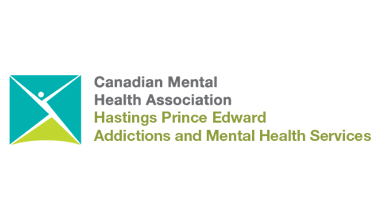
5 New Year’s Resolutions For Depression
When you look back at the past year, what stands out? If the answer to that is depression, feelings of despair or hopelessness, you shouldn’t have to go through that for another whole year.
The stress of the holidays is fading. You’re leaving last year behind and a fresh start awaits. This is a new year. It’s a great time to start working towards managing depression in easily digestible steps. It’s time to have hope that this year will be better, and hope starts with a plan. Here are a few things you can add to your 2019 plan to feel better.
Focus On What You Can Control
Tell yourself: “I will focus on what I can control and let go of what I cannot.”
Depression can negatively impact your ability to concentrate on topics of your own choice. Often, depression wants you to only think about the negative—the coworker who doesn’t seem to like you or the endless thoughts about why you haven’t received a call back from the job interview. In turn, these negative thoughts may influence how you act. While you cannot control who likes you or who offers you a job, you can control how you respond to those situations. You can control how you treat that coworker or whether you continue to send out resumes.
Depression may make it seem impossible to think or act differently. But even just sitting down to make New Year’s resolutions is a step towards taking control back of your thoughts. The physical action of sitting down with a pen and paper is making a behavior change. It’s freeing your thoughts to go in the direction of your choosing. You—not depression—have control over your thoughts and actions.
Choose Your Environment Wisely
Tell yourself: “I will surround myself with positive people.”
Toxic relationships can have a compounding effect on your mental and physical health. In a long-term study that followed more than 10,000 people for an average of 12.2 years, researchers discovered that subjects in negative relationships were at a greater risk for developing heart problems, including a fatal cardiac event, than counterparts whose close relationships were not negative. With that in mind, imagine how a relationship of this nature affects someone with depression? Someone who already battles negativity and sadness on a daily basis?
Give yourself permission to move away from the people who bring you down and nurture the relationships that lift you up. Take note of how you feel when you are interacting with people. Do you feel better or worse about yourself when you spend time with certain people? Do you feel fulfilled in their presence or emotionally drained? Depression wants you to feel alone, and negative influences will only reinforce this harmful notion. But you don’t have to be alone or keep toxic people in your life.You get to decide who you surround yourself with.
Get Help When You Need It
Tell yourself: “I will ask for help when I need it.”
Depression can make you feel weak or flawed. Depression wants you to believe that asking for help is a sign of frailty, reinforcing a sense of being powerless. This is not true. There is strength in asking for help.
You are not alone, and you have people on your side who have your best interest in mind. Give yourself permission to reach out to your friends and family for guidance. Even if you just want a comforting ear. Never forget, you are not a burdenon people who care about you. You are worthy of help.
Give Yourself Positive Affirmations
Tell yourself: “I will say something positive about myself every day”
The trick to fight depression’s automatic negative thoughts is with positive affirmations. Stating these constructive facts about yourself will remind you of your strengths and talents, filling your well of self-esteem that irrational depression thoughts have depleted and help you make positive changes daily.
Start with one positive affirmation per day. It will be easier than you think. Before you know it, you will have 365 days of being kind to yourself and 365 reminders of what you have to offer this world and the people around you.
Fight Depression With Treatment
Tell yourself: “I will leave no stone unturned.”
Treating depression comes in many forms. Some treatment options are time-tested tried and true, such as cognitive behavioral therapy. New innovative treatments for depression are now available as well. As recently as 2008, the FDA approved a promising, non-invasive treatment for depression called transcranial magnetic stimulation (TMS).
With each new year comes new and advancing research for treatment methods to combat depression. This is why seeking help from clinical professionals who stay up to date on the research is so important. They will have the knowledge to be able to offer treatment options that best fit your needs and situation.
It’s clear now more than ever what the New Year message needs to be: the next day, the next year will always come, and with it, we can all find hope. Depression may make you feel like every day, every year will be the same experience, filled with negativity and suffering, but it doesn’t have to be that way.
We can find new ways to bring positive changes to our lives. We can fight and overcome depression. We can start a new year feeling better than we did before.
Dr. Lindsay Israel is a board-certified psychiatrist. Her goal is to help patients feel empowered, because their symptoms can leave them feeling powerless. She specializes in Transcranial Magnetic Stimulation (TMS) therapy for the treatment of various psychiatric disorders. TMS is FDA-approved for depression and is a non-invasive, non-medication alternative to traditional treatments. Dr. Israel’s specialized clinic, SuccessTMS, focuses on this advanced therapy which allows patients to achieve remission from depression and return back to their best lives.
- Author: By Lindsay Israel, M.D.
- Article Source: NAMI








